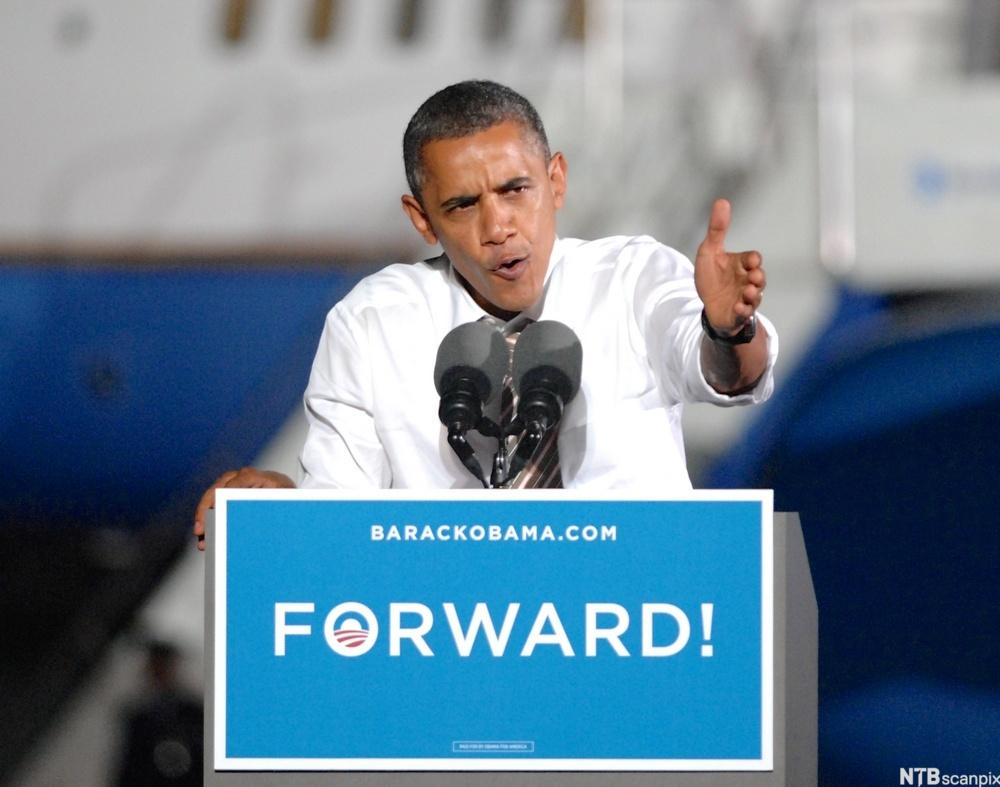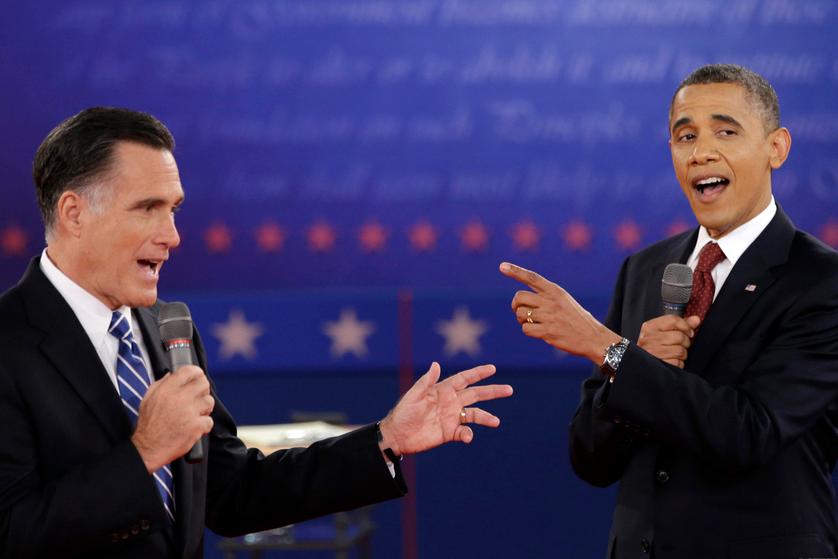
The Obama Years
“Change” was the slogan for the Obama campaign, and the US was ready. After eight years of President George W. Bush, the country’s economy was at a record low, unemployment was sky high and trillions of dollars and many lives were being spent on the increasingly unwinnable and unpopular wars in Iraq and Afghanistan. The rest of the world was also ready for change and Obama won the Nobel Peace Prize in 2009 for his “extraordinary efforts to strengthen international diplomacy and cooperation between peoples”. The attitude toward Obama’s presidency is best expressed in the words of former Peace Prize winner, Desmond Tutu, who said he “lowered the temperature in the world”.
Obama was a very popular president. People were hopeful because he was the country’s first African American president and this signified a major change in the political and cultural climate for many Americans - an end to a political system ruled by wealthy, white men. His platform was based on liberal promises for the nation’s future: a national healthcare system, an end to the wars in Iraq and Afghanistan, and a commitment to battle climate change. These are also the reasons why many were suspicious or even downright angry about Obama’s election. Like all presidents, Obama was controversial, but for many new reasons. Before and after his election, there had been much speculation as to whether or not he qualified to be President—“birthers” claimed that Obama was not a natural-born citizen and therefore could not be President.
Obama’s first and biggest promise of healthcare reform was not easily kept. Despite the election of 2008 producing a Democratic President and Congress, many were sceptical about any change to the healthcare system. Compromise was the name of the game and after many heated debates and months of editing and consulting, the “Affordable Care Act” was passed in Congress, although voted in along party lines. Democrats voted for the Act and Republicans voted against it. The Act is, to this day, mostly referred to as “Obamacare” and includes many significant changes from how healthcare was run in the past. One of these is mandatory health insurance for everyone, and at the same time an effort was made to reduce the cost of insurance and make it more available and easier to get covered. Critics point out the general cost of the Act, the complex and bureaucratic process of getting insurance and the significant rate hikes for many insured citizens.
Another promise of the Obama campaign was to pull troops out of both Afghanistan and Iraq. This did not happen as promised, due to increased tension and fighting in these countries and so the War on Terror continued, but with far fewer troops on the ground. Instead, Obama used drones to do much of the fighting, but the availability of drones also raised concerns about their use, both in delivering spy-ware by enemy states, and as being a surveillance tool to spy on citizens.

The 2012 election was once again an exciting time in the USA, this time pitting a president with a high approval rating against a lesser known Republican senator. Mitt Romney was criticized for many things, but among the big issues was his conservative religious background (he was a Mormon) and his wealth—he wasn’t a candidate to which the people could relate. Additionally, more and more voters became disillusioned with the high cost and length of elections - many question how democratic the system can be if elections cost upwards of a billion dollars. The cost of Obama’s 2012 election alone was over 800 million dollars, with the funding and support of corporations and money-raising organizations.
If the name of the game was “compromise” in Obama’s first term, “gridlock” was the game in his second. With a Democrat in the White House and Republicans in Congress, few compromises were made. Republicans voted almost categorically against Democratic bills, budgets and initiatives and little effort was made on either side to work “across the aisle”. As a result, little progress was made in Washington and Americans lost even more hope and trust in their government. Troops left Iraq and Afghanistan but fear of terrorism blossomed again after the rise of ISIS in the Middle East. The national debt grew even larger and millions of Americans still struggled to make ends meet with a lack of living-wage jobs, while obscene amounts of money were used in elections. Obama did manage to push through a few of his earlier promises, one being an end to the “don’t ask, don’t tell” policy for military personnel, where homosexuality was not allowed, but with sexuality not questioned. Obama entered into an international climate change agreement, and reopened trade with Cuba. In 2015, same-sex marriage was nationally legalized, and the economy stabilized and started to grow after the “Great Recession” of 2008. Obama enjoyed some of the best approval ratings of any president in the last 50 years. He delivered moving speeches, and was viewed as a voice, not only for minorities, but also for intellectuals and young voters; his love of basketball and rap music also helped towards him being considered a “cool” President. Moreover, many believed he was a trustworthy, loved and strong black leader who contributed to the easing of racial tensions and divisions in the country.
Discussion Questions:
- In the US, there are only two major political parties and yet nearly one third of Americans are “swing” voters or vote for third- party candidates. What are the disadvantages of a “two-party” system? How do you think elections would be different in there were more powerful parties in the US?
- “Yes We Can” was the title of Obama’s victory speech in 2008 and those words were used as a refrain in American culture for years afterwards. What do you think Americans like about those words? What did they hope to do?
- When President Obama signed his name at his inauguration, he wrote his full name which includes his middle name, Hussein. Why were many Americans upset about this?
- Find out what the most important changes were that were made by the Affordable Care Act (“Obamacare” or ACA). Why was it controversial? What are some arguments for the Act? What are some arguments against it? Use these websites to aid your research: http://www.bbc.com/news/world-us-canada-24370967
http://affordablehealthca.com/timeline-obamacare/
Bibliography
The 2012 Money Race: Compare the Candidates - NYTimes.com. (n.d.). Retrieved November 15, 2017, from https://www.nytimes.com/elections/2012/campaign-finance.html
The Nobel Peace Prize 2009 - Presentation Speech. (n.d.). Retrieved November 14, 2017, from https://www.nobelprize.org/nobel_prizes/peace/laureates/2009/presentation-speech.html
Timeline: Affordable Care Act’s long road to political reality. (n.d.). Retrieved November 14, 2017, from http://affordablehealthca.com/timeline-obamacare/